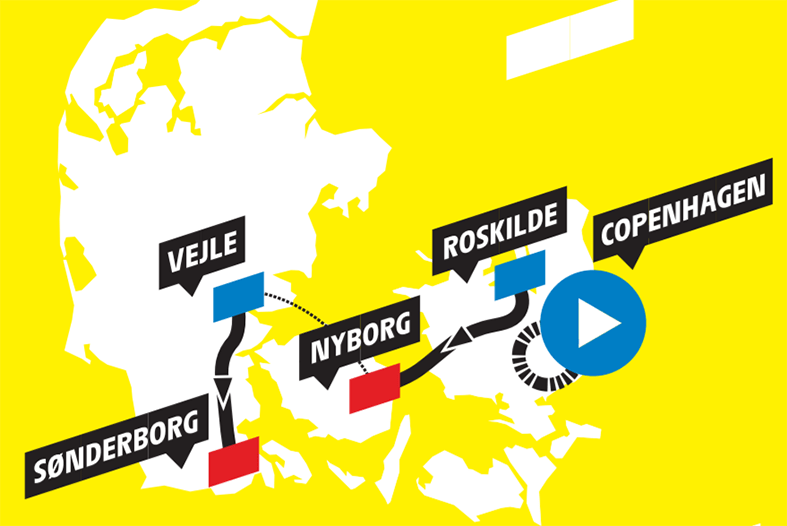Following months of debate and negotiations, Copenhagen mayor Frank Jensen revealed today that the Tour de France start in Denmark will be moved to 2022.
Originally slated for next summer, Copenhagen and the race organisers found themselves in a bit of a pickle after Euro 2020 – four games hosted by the Danish capital – and the Olympic Games were postponed until the summer of 2021.
“I’m pleased that we have managed to ensure a Danish Tour start in 2022. There are a lot of us who have looked forward to getting the Tour de France to Denmark and unfortunately we will need to wait a bit longer,” Jensen told TV2 News.
“But now the Danes will enjoy an even bigger yellow party in 2022 now that it won’t be squeezed by the Euros and the Olympics – by when we’ve hopefully put some distance between us and the coronavirus.”
READ ALSO: 2021 Tour de France: set in stone
No change to route
The new plan will see the first three stages of the iconic race take place from July 1-3 in 2022.
The Danish element of the event organisation does not foresee the move impacting the routes of the three stages in Denmark, although it will cost an additional 5.8 million kroner.
The French region of Brittany will reportedly replace Copenhagen for next year’s edition.















